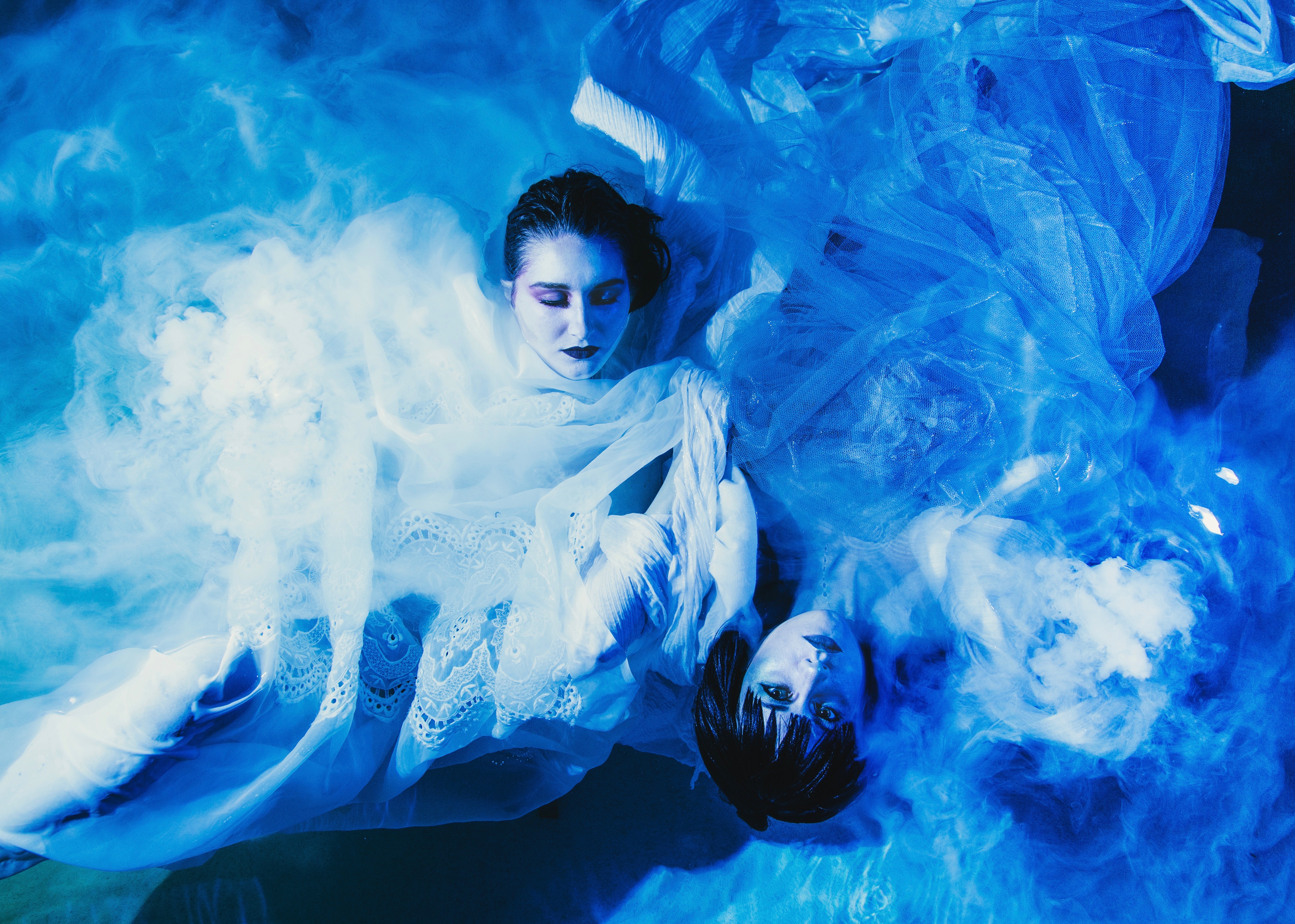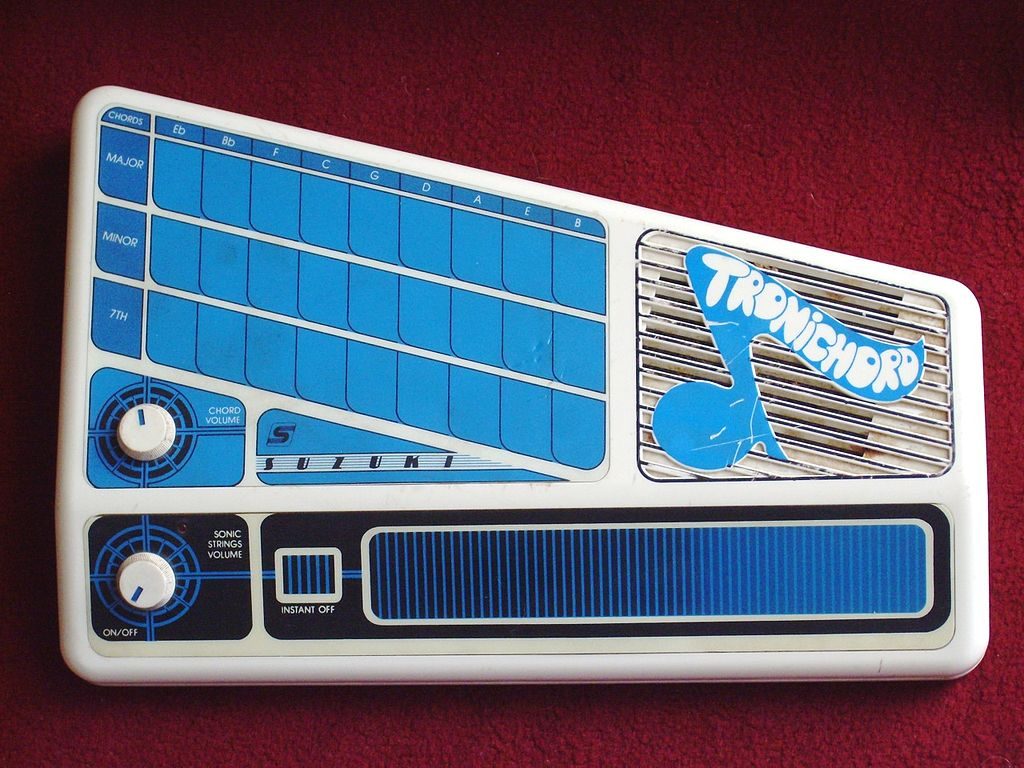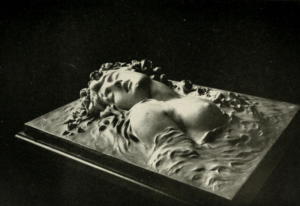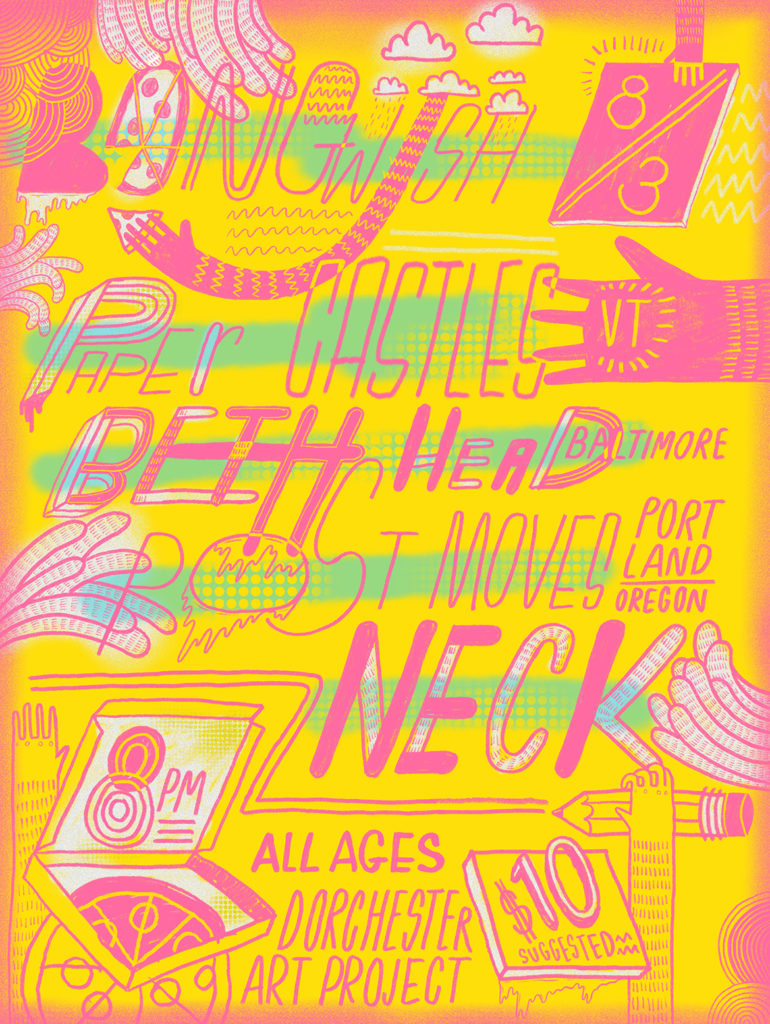I can’t say that no one brings me flowers anymore, because as Neck’s Kira McSpice and Bailey Hein walk up the steep steps of Dorchester Art Project for their interview, I’m handed two stems of beautiful yellow orchids. Working at a flower shop, Kira has to either throw away or salvage whole bundles of beautiful cut flowers everyday. I ask about putting them in water, but Kira lets me know that since they’re cut, they’re already dying – so no amount of water really delays the inevitable. Given Neck’s sinister yet enthralling siren like soundscape, if feels appropriate that Kira works at a shop filled with beautiful things that are already dead. Equally appropriate, Bailey works a nightclub venue named after the fairy god, Oberon. Horror, nature’s beauty, and fairy tales all come together in Neck, a project initially started only a year ago as a single summer pastime.
Kira – music really pushed us together. We had no idea what we were getting ourselves into. Someone filled me in on what Bailey had been up to with sort of electronic ambient stuff and I thought it would mesh really well with the singer songwriter stuff that I had been working on. So I went up to her and said hey, we should collaborate. So we weren’t friends before, we just threw ourselves into each other
K – yes
Bailey – it’s a constant battle
K – definitely mysterious dynamics at play
B – yeah it’s definitely not a normal dynamic – you can feel that out – but we both want the same thing. We started out with field recording and making noises under bridges…and not knowing how to organize songs together. Hitting spatulas on the ground and other trinkets…that’s not really the greatest way to make songs, turns out!
K – yeah we didn’t get very far doing that! Every practice was getting field recordings and getting drunk. Eventually I finally was like, okay, listen, I have a bunch of songs. I’m just going to bring them to you and see what you can do with that. That’s when we realized what our dynamic was – how to make things actually happen. Because we can have fun field recording, but we did really want to perform, and we did really want to get songs out.
B – for us to get anything done, to complete anything, we do need to set an arbitrary date. For our first show together we really didn’t have any songs -so we just set a date last August at Cloud Club and said alright, we’re going to do a show. And we thought this would be the only performance we would ever do.
K – yeah I was like, I would just be happy if I had one show, and it’s going to be really good. Some of the songs were weird, but some of them actually ended up in the EP. Some of them we’re performing now.
L – it sounds really special to find someone creative who’s on the same wavelength – who can work well under the same kind of pressure – and to still stick around!
K – I think we’ve both realized how rare that is to find a partner, like you said, who is on the same wavelength. Bailey really understands my taste. Sometimes I say “oh, could you sing this harmony” and before I even sing it Bailey’s like “oh, this one?” It’s nice.
B – yeah it is nice. You just have to hang out with someone incessantly, and then your minds start to meld and your spirits become one.
K – just mind meld until you don’t have to use words to communicate.
L – so, you find playing a little every day together crucial?
B – yeah, for our life structure we need that – we’ve made this project the means of, yes therapy, but also this simple way of creating a daily cycle. We also need to practice a lot because we are not playing our primary instruments!
L – I wanted to ask you about your instruments since the omnichord is not your everyday instrument to bring into…anything!
K – yeah – I don’t even know how I found it…I think I bought it off craigslist! I was just really curious about omnichords and I saw through YouTube videos that you can totally trick ‘em out, modify them, circuit bend them; that’s what I really wanted to do with it. So I bought it from this guys who fixes a bunch of omnichords in Boston and we had it for a year… then it got too circuit bent and it kind of got messed up…so we had to go back to the same guys and get another omnichord! And now we’re too afraid to circuit bend it too much again.
L – has that lead to something – having that restriction to this instrument where you can’t fuck with it to the extent that you would like?
K – Oh, oh that’s our whole thing – Limits! Limits are the big thing for us – you have to have limits. If you come into a project with everything, you just get overwhelmed. We have such a particular sound and I think it’s because of the limitations… of the omnichord, of the pedals, of our voices –
B– of working together – you always have to compromise a little bit working together. Before I had too many options working solo – bouncing ideas off of another person really helps narrow down what is possible in a good way. Helps narrow down the infinite possibilities of making music.
K – the omnichord is not what we write the majority of our songs on, thought. I’ve written a few songs with the omnichord – but usually I start off with my guitar. We’ve been trying to move into writing with our string instruments, but when it comes to figuring out the structure of a song I’ll use guitar and then bring Bailey into it and see what she can add to it. Depending on the instrument, I definitely see different songs come out: with omnichord it’s a lot more pop; with the guitar it’s way more ambient…maybe because I don’t know how to play the guitar!
B – but still, it’s simple and loopy, which is important for me because then I can work off of that. Add texture and all those things.
L – you use the word ‘simple’ – I wouldn’t necessarily call your songs simple. Unless, are you coming from a project that was a lot more complex in terms of orchestration? What makes you use the word simple?
K – maybe they’re weird chords just because I don’t know what I’m doing but yeah our songs seem like a very simple repetitive thing. In terms of complexity, me and Bailey are used to symphonic stuff because we grew up with orchestral works. She grew up with violin, I grew up with cello. So going from all of that into this seems like a very simple, but mysterious process.
L – that makes more sense, coming from an orchestral background! So, where you both raised and how does that affect your music making now?
B – I grew up in one spot in Southern California. I came here because I just needed to get the hell out of California. I was tired of it. I used auditioning to Berklee with the violin as a way to defect from that place. I went from being really sheltered in this weird Southern California bubble to Boston – it was very incredible shift. It took me a long time to get roots here. But then I started to meet all these DIY Alston bands and very friendly, very extremely talented people, who are just making shit happen and not waiting for things to be set up for them. I think I had some kind of identity crisis about me coming here on classical Violin and me not actually enjoying it, not focusing on classical violin at all. So I stepped back and got in with a great community. I learned different music sequencing softwares, and started visual art. Then from being in that crowd and going to all of these DIY shows, I bumped into this one – your turn!
K – oh, I’ve lived a lot of places. I grew up in Georgia for the first 13 years of life as the only cellist in my very small town, and then had to up and move to California because of my dad’s job. There I kept playing cello – I played in a symphony and I started writing my own songs. I started trying to learn guitar but it never really clicked with me so I stayed with playing the cello. I really love the cello and wanted to pursue it more but once I got to University of San Francisco I dropped out because wasn’t feeling it. I had a falling out with my cello, with writing songs in general, got super depressed and ended up traveling a lot. Went to Santa Barbara, St. Louis. In st Louis, I really found myself again, started practicing cello a lot, and decided I would audition for Berklee and see what would happen. I got in and I dropped out after the first year because school, school…just isn’t for me. I really needed to create and perform and school was getting in the way!
B – we’re not the best at being students, so we just kind of – this is why we practice so much too – this is kind of the only thing going for us… we don’t have anything else happening in our lives
K – yeah, Neck is the most important thing. Like, we’ve studied tonal harmonies and we can transcribe whatever you need – but we’ve taken the instruments that we understand with notes, chord progressions and all that bullshit, and applied it to instruments where we don’t know anything so we can just make something emotional. I’m so tired of non-emotional smart music, we need more…
B – more of the childish finger painting on the wall! We would be too stressed and overwhelmed if we knew what we were doing
K – so stressed out. This is very cathartic for us.
Neck wanted to plug this fan made video, check it out
L – I wanted to ask you about your treatment music production wise. The tone you cultivate is very specific. I’m always curious about how much a production style is incidental – tied to your knowledge limits – and how much of it is a perfect alignment with the intentions you had going in.
K – when it comes to song writing and arrangement we are more focused on limits for that, but then when it comes to the production we always tend to get really big ideas for it –
B – bouncing off of the subject matter –
K – yeah – we have this little tiny thing that is the song and what it might mean, and then it just expands into this bigger idea that turns into a whole landscape
B – we’re trying to create an environment that houses a whole idea we’re trying to get across. Fortunately, as far as tools go, we have incredible resources – shout out to our producer Tyler –
K – Tyler has helped a lot to get us what we want. Like with Puzzle factory I had an idea of the song and the lyrics and everything, then Bailey had an idea to add that part at the end, that very meditative ambient part, and then Tyler came in to create the feeling we wanted
B – the feel of isolation in a big space. To get that, we went into this spooky big ol’ warehouse in Jersey and got the percussion for Puzzle Factory by hitting stuff. We miced the whole warehouse and just threw things across the room, slapped things with other things, and then organized that so it would feel very cold and large and very lonely.
K – I think we’re very particular production wise, and I think we can image the sound, but we don’t always know how to make it happen. That’s where Tyler comes in.
B – yeah we got very lucky with our label, Jass.
L – Okay last question and I hope it’s a fun one – if you could give yourself a genre that’s outside generic terms
K – like, a metaphor genre…?
L – yeah! What would it be?
B – screaming into a pillow?
K – that’s pretty good, but I think it’s more like drowning…
B – like, resigned drowning…
K – it definitely has a floating quality, but it’s sad – because you’re dying
B – it’s resigned content drowning, when you’re just like “alright, I’m good”
K – yeah, a real Ophelia
L – okay! Well thank you for a real downer of an ending!
B – that’s how we roll. We’re pretty fucked up
K – yeah we got some issues.
Catch Neck at Dorchester Art Project on the 3rd of August with Lady Pills, Paper Castles, Bedhead and Post Moves. 8-11:30 pm $10.





